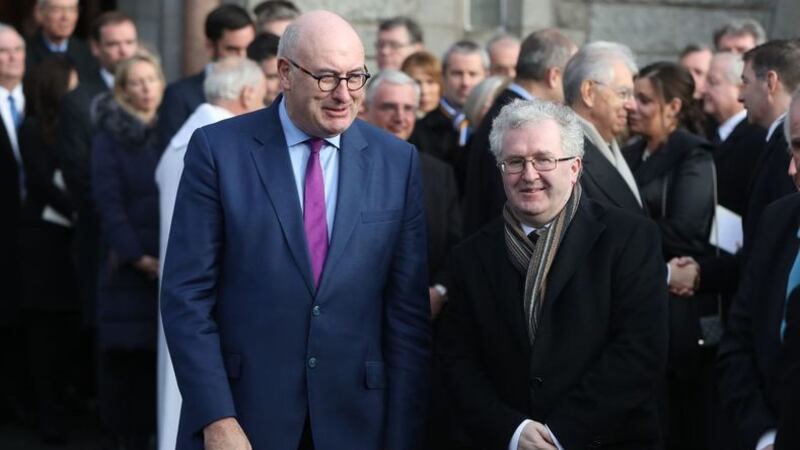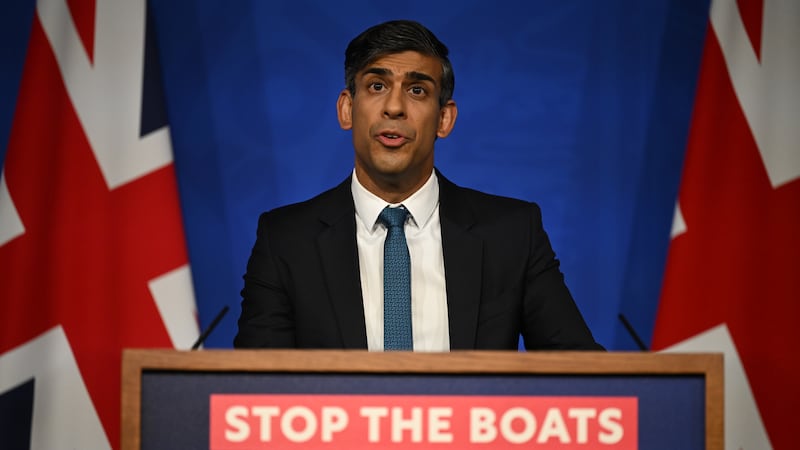Although power does not necessarily corrupt, it certainly appears to instil a sense of superiority among many of those who wield it.
If we had any doubts about the huge gap between the powerful and the powerless, the coronavirus pandemic has dispelled them with relentless regularity.
In London, Dublin and Belfast some of the politically powerful have displayed a novel disregard for public health guidance, sometimes even ignoring the rules they helped to formulate.
The general reaction by rule breakers has been delay, denial and diversion. But while this has allowed some to retain power, it has not saved others. Why? The answer is that the greater your power, the more chance you have of getting away with it.
For example, Boris Johnson's political guru, Dominic Cummings travelled the length of Britain during lockdown, including a 30-mile additional trip to assess if he was well enough to drive. The medical journal, The Lancet, identified the "Cummings effect" on undermining public health messaging.
But Johnson, backed by an 80-seat majority in the Commons, said that Cummings acted "responsibly, legally and with integrity." Johnson's power made medical advice irrelevant.
Safe though he is, Johnson is less secure in London than Sinn Féin is in Belfast. With 28 per cent electoral support, SF has a legal entitlement to power. So the party organised an estimated 1,500 people to attend the late Bobby Storey's funeral, confident in the knowledge that its political clout would survive any criticism.
It worked. All that happened was that the first and deputy first minister's joint Covid-19 press conferences were suspended. (That might be no harm. Both ministers were less than convincing in their deliveries and they may have run out of clichés and platitudes by now any way.)
The other four major Assembly parties called on Michelle O'Neill to step aside over her attendance at the funeral. Like Dominic Cummings she refused, knowing that political power outweighs public indignation.
Things are different in Dublin. Taoiseach Micheál Martin is finding it difficult to hold together a fragile coalition.
So when the press revealed that the agriculture minister attended a golfing dinner in Galway, apparently in breach of the Covid-19 restrictions, he was gone within 12 hours. Unlike the Tories and northern SF, Martin did not have the power to ride out the storm.
He lacked the authority to sack EU Commissioner, Phil Hogan. But with belated assistance from Leo Varadkar, Martin effectively told the EU to sack Hogan, whose retention of office would have seriously damaged public confidence in a weakened Irish government.
(As Fine Gael minister in 2014, Big Phil tried to introduce water charges, threatening that those who did not pay would have their supply cut off. This week he appeared to suggest that he did not accept government guidance on isolation. One rule for the poor, another for the powerful.)
Sinn Féin, which had observed the same initial silence as Varadkar, belatedly complained about Phil Hogan On Tour. RTÉ interviews with SF representatives generally avoided the Bobby Storey funeral. When it was raised, SF responded that a funeral is not the same as a golf outing, asking us to believe that the coronavirus has a social conscience, allowing it to differentiate between events.
The EU, already in disarray over Covid-19, lacked the power to protect Hogan. To avoid further reputational damage, the EU President accepted his resignation, not for reasons of ethics, morality or principles - just plain, old fashioned public relations.
One retired Dublin judge has warned against unfairly hounding "good people" out of office for "one serious mistake". It is a valid point, but it raises the issue of how many serious mistakes "good people" should be allowed to make. (Two? Seven? Twenty-five?)
The answer is that with sufficient political power, you can make as many as you like. This means that as long as political behaviour is rooted in power rather than integrity, the powerless will always be disadvantaged. Power may come and go, but integrity, or the lack of it, is permanent.









